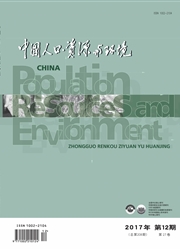

 中文摘要:
中文摘要:
在事实现象的启示下,本文从技术溢出的视角研究了国际贸易的环境技术效应。基于“生产一污染”一般均衡理论模型.假设当通过国际贸易购买国际先进环保技术以达到国内减排标准时。导致的技术溢出与扩散会对进口国环境规制和污染减排起到正向作用。在实证部分利用环境技术专利数据构建国际和国内环保技术知识存量对中国经验进行检验。结果证实了国际前沿环保技术存在对中国的溢出与转移,并且帮助了工业废水和CO:的减排,而国际贸易正是这一过程的有效路径,这体现出国际贸易环境技术效应的实现途径.同时国内的相关技术存量促进了对溢出技术的吸收与利用。研究还发现人均收入的提高和政府对社会福利的重视同样对中国节能减排和环境规制起到了积极作用。因此。建议政府在开放对外贸易时采取“市场换环保技术”战略。同时支持环保专利国际共享。并改革官员考核指标。进一步转变增长方式。加大对环境等发展问题的重视。
 英文摘要:
英文摘要:
Under the inspiration of real phenomenon, this paper studies the technology effect of international trade from the perspectives of technology spillover. Based on the general equilibrium model of ' production-pollution' , it is assumed that producers purchase international advanced environmental protection technology by international trade to meet emission reduction standards, and the results of technology spillover and diffusion have a positive effect on environmental regulation and pollution of importing countries. In the empirical part, environmental-related technology patent data are applied to build international and domestic environmental protection technology knowledge stocks to test the Chinese empirical data. The results indicate that international frontier environmental friendly technology spillover and diffuse into China which helps Chinese industry waste water and CO2 emission abatement and international trade and is an effective way of this process, which reflects the one of paths of environmental technology effect of international trade. Meanwhile, domestic related technology knowledge stocks are beneficial to absorb and use these overflow technology. This study also finds that the growth of per capita income and the government's emphasis on social welfare play positive roles on the energy conservation, pollution abatement and the strict environmental regulation. Therefore, it is recommended that government can use ' market for environmental technology' strategy during the opening-up process of international trade, support the international environmental patent sharing and reform officials assessment indicators to change the way of growth which may promote the local government to pay attention to the environmental problems.
 同期刊论文项目
同期刊论文项目
 同项目期刊论文
同项目期刊论文
 期刊信息
期刊信息
